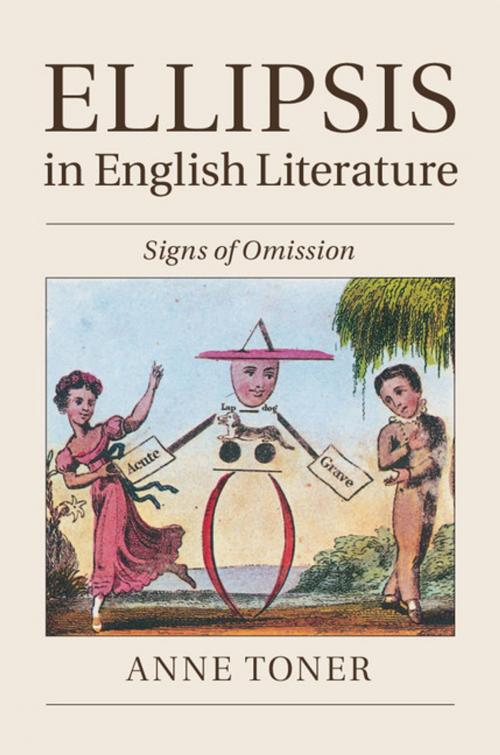Ellipsis in English Literature
Signs of Omission
Fiction & Literature, Literary Theory & Criticism, British, Nonfiction, Reference & Language, Language Arts| Author: | Anne Toner | ISBN: | 9781316234921 |
| Publisher: | Cambridge University Press | Publication: | March 5, 2015 |
| Imprint: | Cambridge University Press | Language: | English |
| Author: | Anne Toner |
| ISBN: | 9781316234921 |
| Publisher: | Cambridge University Press |
| Publication: | March 5, 2015 |
| Imprint: | Cambridge University Press |
| Language: | English |
Anne Toner provides an original account of the history of ellipsis marks - dots, dashes and asterisks - in English literary writing. Highlighting ever-renewing interest in these forms of non-completion in literature, Toner demonstrates how writers have striven to get closer to the hesitancies and interruptions of spoken language, the indeterminacies of thought, and the successive or fragmented nature of experience by means of these textual symbols. While such punctuation marks may seem routine today, this book describes their emergence in early modern drama and examines the relationship between authors, printers and grammarians in advancing or obstructing the standardisation of the marks. Their development is explored through close study of the works of major English writers, including Jonson, Shakespeare, Richardson, Sterne, Meredith and Woolf, along with visual illustrations of their usage. In particular, Toner traces the evolution of ellipsis marks in the novel, a form highly receptive to elliptical punctuation.
Anne Toner provides an original account of the history of ellipsis marks - dots, dashes and asterisks - in English literary writing. Highlighting ever-renewing interest in these forms of non-completion in literature, Toner demonstrates how writers have striven to get closer to the hesitancies and interruptions of spoken language, the indeterminacies of thought, and the successive or fragmented nature of experience by means of these textual symbols. While such punctuation marks may seem routine today, this book describes their emergence in early modern drama and examines the relationship between authors, printers and grammarians in advancing or obstructing the standardisation of the marks. Their development is explored through close study of the works of major English writers, including Jonson, Shakespeare, Richardson, Sterne, Meredith and Woolf, along with visual illustrations of their usage. In particular, Toner traces the evolution of ellipsis marks in the novel, a form highly receptive to elliptical punctuation.















